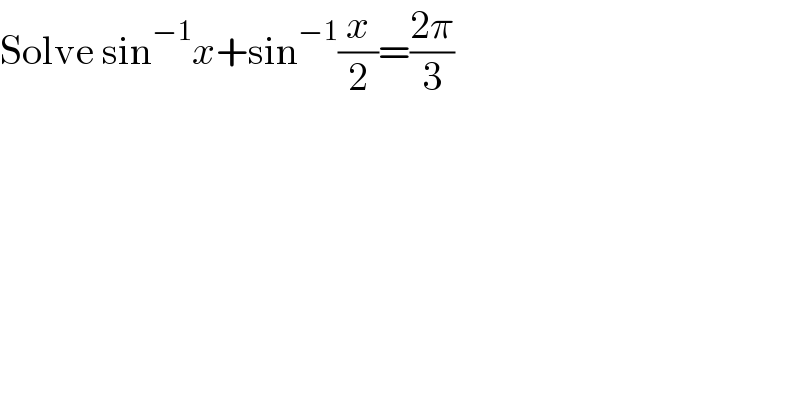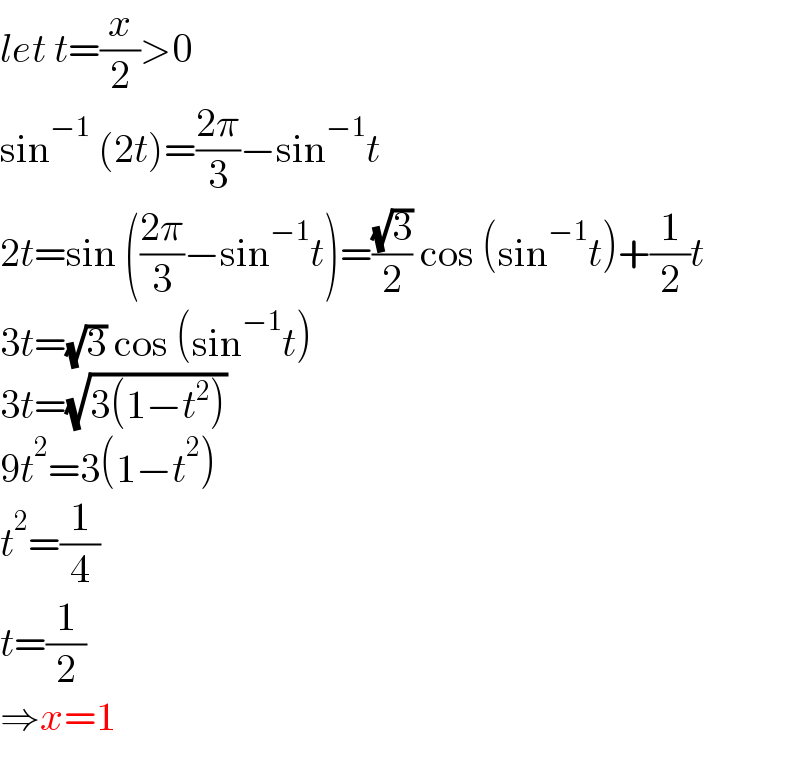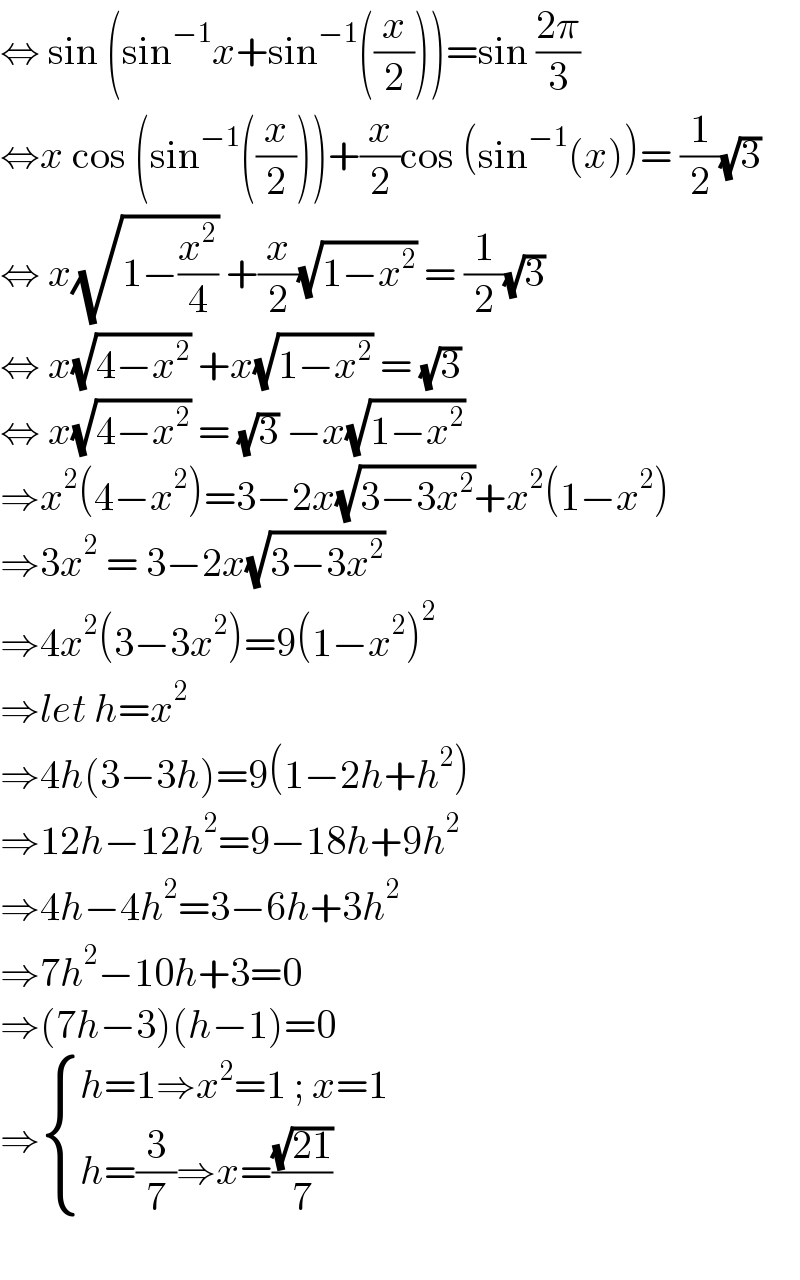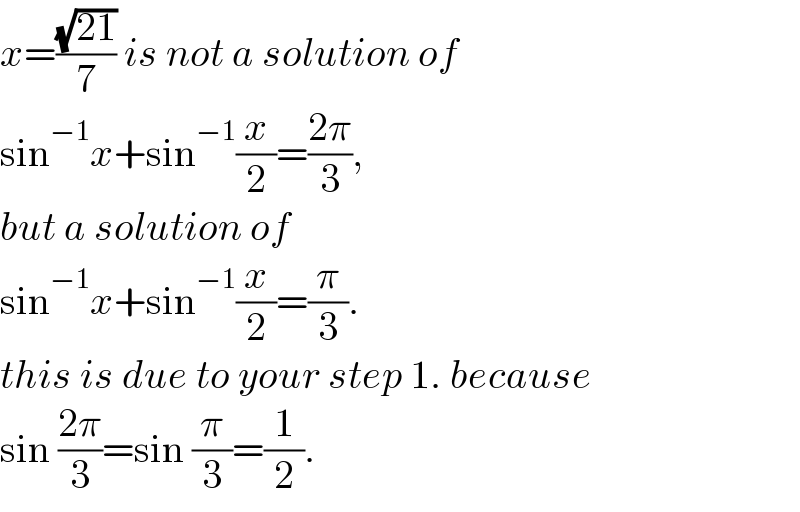
Question and Answers Forum
Question Number 131107 by ZiYangLee last updated on 01/Feb/21

Answered by mr W last updated on 01/Feb/21

Answered by EDWIN88 last updated on 02/Feb/21

Commented by mr W last updated on 02/Feb/21

| ||
Question and Answers Forum | ||
Question Number 131107 by ZiYangLee last updated on 01/Feb/21 | ||
 | ||
Answered by mr W last updated on 01/Feb/21 | ||
 | ||
| ||
Answered by EDWIN88 last updated on 02/Feb/21 | ||
 | ||
| ||
Commented by mr W last updated on 02/Feb/21 | ||
 | ||